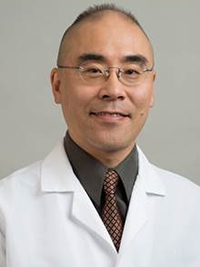
Professor
Department of Radiation Oncology
University of California, Los Angeles (UCLA)
Los Angeles, CA
Using a weak electromagnetic field to improve radiotherapeutic gain in treating pancreatic cancer
Overview
Aim: Therapy
One-third of pancreatic cancer patients who undergo treatment die from recurrences at the primary tumor site, therefore improvement of local control could vastly increase survival from this devastating disease. Radiotherapy for pancreatic cancer is arguably effective but collateral damage to adjacent normal gastrointestinal tissues can be dose-limiting (under-dosing the tumor and tumor margin for fear of overdosing the surrounding radiosensitive normal organs) and therefore efficacy-limiting.
We propose manipulating the very mechanism that makes radiation such an effective cancer cell-killing agent – its ability to break chemical bonds in critical cellular molecules like DNA via production of free radicals, which are highly reactive molecules. Much of radiotherapy’s clinical efficacy results from ionization-induced free radical (FR) production. The presence of low-strength electromagnetic fields (EMF) – similar to what you might get from a simple refrigerator magnet – is known to change the FR recombination rates via radical pair intermediates (triplet and singlet states). FRs in cells are however, not limited to direct FR production by ionizing radiation (IR), but also to the downstream cascade of cellularly generated FR as responses to the initial FR-induced damage. Thus, changing FR interconversion rates between singlet and triplet states using weak EMFs should alter FR recombination frequency, their lifetimes, ensuing cellular responses, and therefore radiotherapy efficacy.
The hypothesis to be tested is that the splitting of the triplet state in an external EMF with a corresponding increase in FR concentration will translate to a concomitant increase in DNA damage and cell killing in pancreatic tumors. Further, it is suspected that EMF can perturb, in a cell-specific manner, the signaling pathways involving radical species inherent in cellular stress responses – responses important in normal cell recovery from IR damage. We plan to show certain EMF can increase radiation-induced free radical reactivity in tumor cells while at the same time decrease their reactivity in normal cells, thereby improving the therapeutic advantage in pancreatic cancer treatment. We therefore envision a customizable scenario where the correct EMF applied during radiotherapy would enhance radiation killing of cancer cells and simultaneously reduce injury of the stomach and intestine. We are hopeful this improved targeted therapy would prevent tumor recurrence while limiting the deleterious side effects to surrounding organs.

